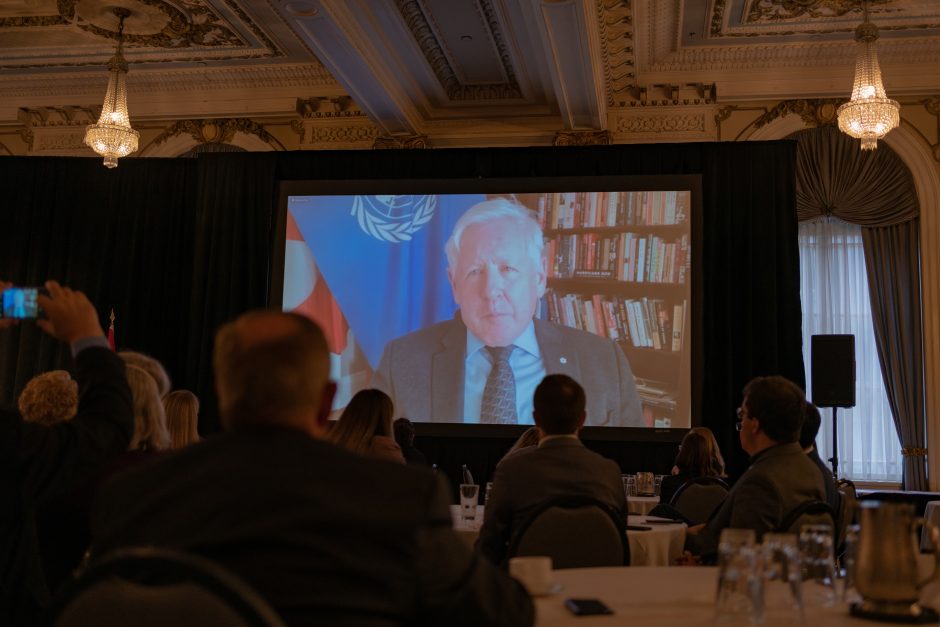Canada’s co-op movement converged on Calgary yesterday for its annual congress, which began with a look at how Alberta’s co-ops are historically embedded in the province, playing a crucial role in its economy.
The bilingual, hybrid event, organised by national apex body Co-operatives and Mutuals Canada, has gathered the country’s co-ops, credit unions and mutuals in its fourth-largest city for three days of discussion.
The opening session introduced participants to the local co-operative movement. Vicki Zinyk, general manager of the North Parkland Power Rural Electrification Association and board chair of the Alberta Community and Co-operative Association (ACCA), highlighted the sector’s role in the province’s economy. Alberta has 704 co-ops that issued over CA$100m in dividends in 2021. Two thirds of Albertans are members of a local credit union, co-operative or mutual, she said.
One of the best known is United Farmers of Alberta (UFA), which has 120,000 farmer owners. Its chair, Kevin Hoppins, a third generation leader at the organisation, said the co-op is “deeply entrenched in Alberta’s history”. Set up in 1909 – just four years after Alberta was founded – it had ambitions beyond agriculture. In 1919 it passed a resolution to allow its members to engage in political activity and by the 1921 general election, the small group of farmers had secured two thirds of the province’s legislative seats. UFA’s leader at the time, Henry Wise Wood, said: “We had no political organisation in the ordinary sense of the word but we had something better – an intelligent citizenship.”
Related: The co-operative difference in Canada – how CMC promotes the sector
Alberta farmers went on to play a key role in the electrification of the province’s rural areas in the 1940s by forming electric co-ops – known as Rural Electrification Associations (REAs). “Companies existing at the time couldn’t see the values of bringing electricity to rural Alberta, it was about costs for them,” said Andy Metzger, CEO at utilities co-op EQUS. “So REAs formed and grew over the years. The value the co-ops can provide to our members is only growing.”
The movement is continuing to drive development; Mr Metzger said EQUS is planning to focus on promoting renewables and continuing to bring broadband to rural Alberta.
“Currently, we have three of our five operating facilities,” he added, “generating clean, green electricity from over 100 kilowatts of solar power. And we’re using a natural gas cogeneration, to provide high efficiency heat and electricity at our new head office.”
The co-op has also taken steps to modernise its distribution system with the development and deployment of smart metering infrastructure.
Related: Canadian government to embark on a $500m co-op house-building spree
“These meters help us better understand the demand on our distribution system, allowing us to better plan and develop the system and they empower our members to better manage their electricity consumption,” said Mr Metzger, who believes power co-ops have a great future in Alberta.
“We’re looking to be responsive and proactive in meeting the evolving needs of our members and their communities,” he told delegates. “Right now we’re seeing a high need for high-speed internet in our communities.
“This is the same case as it was back in the 1940s with power – the investor-owned broadband companies are not stepping up to this need. They cannot see how they can make this feasible, and get a return on those dollars. So that’s where we come in. We believe our co-operative has an incredible opportunity to meet this need for rural broadband services.
“Our roots run deep in rural Alberta, and the future of co-operatives in Alberta is bright.”

Bob Rae, ambassador and permanent representative of Canada at the United Nations, told the session that co-ops have a key role to play in driving sustainable development in Canada and around the world, with global challenges like climate change, Covid-19 and the Ukraine war needing global answers.
“Sustainable development is not just a development project for other places, it is about the whole planet,” he said. “There is no effective answer except for a global one. And at the same time, the global one requires us step up at home.”
Related: Canadian co-operators want law change to prevent repeat of MEC demutualisation
Asked how co-operatives can help to build a more sustainable world, he said the movement has had a tremendous impact in countries in the global south, and praised agricultural, fishery co-operatives, and credit co-operatives for their positive contributions.
Current world crises pose a threat to the credibility of important world organisations, he warned. “Institutions that are far away, that are distant and that are so big that nobody really trusts them or believes what they have to say, have much less prospect of really being well received.”
But co-op ventures offer a solution to this, he added; they “have shares that are tied to common equity, that are tied to a sense of people working together for a better return and doing it for each other. These are very powerfully based in human solidarity, they’re very powerfully based in in great values.”
Urging delegates to step up to this challenge, he said: “I think the co-operative institutions of the world have a tremendous amount to contribute to the current crisis. I hope very much that the Canadian co-operative community will see the opportunity to engage at the global level, as I know you do, to help make a difference.”
The congress will continue over the next two days, exploring what avenues can be taken to advance a more co-operative economy and society.